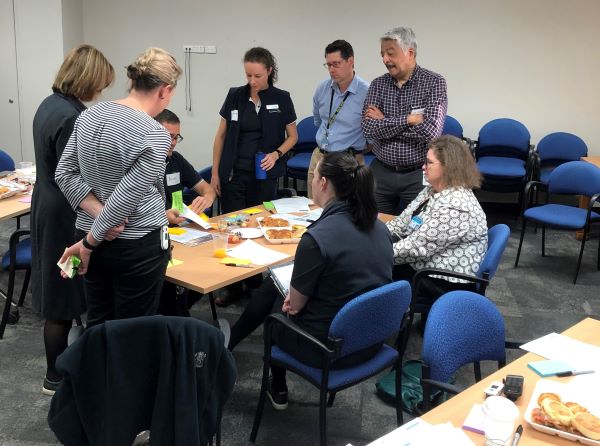Optimising the care for people with a Spinal Cord Injury using participation action research
Hopkins Clinical Research Fellow, Glenn Verner-Wren, is exploring solutions design to optimise the processes of care for the management of people with a Spinal Cord Injury (SCI) on the Orthopaedics Ward at the Princess Alexandra Hospital (PAH).
The project data shows that there is some variability in rehabilitation transition waiting times for people with a newly acquired SCI on the orthopaedic wards at the PAH. It also shows areas where processes of care might be improved to manage these patients while they wait to be admitted to the Spinal Injuries Unit. By improving the interface between acute and rehabilitation areas, it is anticipated that these people will receive better care, leading to better patient outcomes, improved staff satisfaction and hospital wide efficiencies.
Glenn says, 'This research is really important because it has involved working with the clinicians, stakeholders and people with a SCI to come up with tailored solutions to improve how we provide care to people who have just had a SCI'.
Earlier in the year, a comprehensive diagnostic systems evaluation was completed in March, with several key themes being identified, centred around variability in medical practices, SIU and acute care processes and a number of system interface issues. Resource constraints and communication challenges underpinned these key themes.
A solutions workshop was conducted in June, whereby 23 key stakeholders from both with SIU and acute areas, including a consumer representative, prioritised the issues that were identified in phase 1 of the project and started to develop solutions. Some very exciting developments are in the process of being finalised, with the aim to have solutions implemented into practice in October this year.
These soluitions are focussed on improving the access to specialist care for people with a newly acquired SCI, with the aim for them to commence their rehabilitation sooner and improve the information provided about their injury and their ongoing plan of care.
Glenn shares, 'that it has been great to be able to sit down and spend some uninterupted time listening to a number of people with a newly acquired SCI, each with a very different story to tell. Clinicians involved in the care for people with a SCI have all been very generous with their time for the project and it is very clear that they are all dedicated to providing the best care they possibly can. It has also been a privelage to be working with my research team and The Hopkins Centre.'
This project is funded by The Hopkins Centre seed grant and clinical fellowship program, supported by Motor Accident Insurance Commission (MAIC).
.jpg)

Two images above taken at the project solutions workshop in June 2021. Images include clinicians from SIU and acute areas, as well as workshop facilitator and consumer representative.

